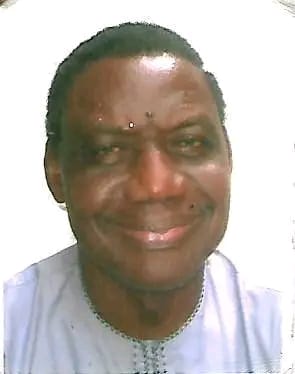Ayo Oyoeze Baje
” Successful leaders cement legacies through enduring policies, institutionalizing reforms and cultivating strong successors
In its distilled essence, leadership encapsulates the capacity to identify and highlight the most pressing needs and challenges faced by the led majority of the people, by those placed in positions of authority to do so. And they should be able to actualize the methods and mechanisms to satisfy those needs. That explains the imperative of firmly putting in place structures that would ensure that only the best hands emerge to steer the ship of state through every possible storm. That, of course, is based on their strong moral compass and the capability to navigate it to the harbour of the people’s collective hope.
Such leaders should possess the sterling qualities of vision and the 6-C principles of character, commitment, consistency, candour, compassion and the courage to do the right thing, not for personal aggrandizement but for the common good, always. That also entails self-sacrifice and brings to bear the importance of the 3-H philosophies of humility, honour and honesty of purpose. Above all these is the unfailing significance of the fear of God, who gives wisdom- which is the principal thing – to guide the leaders right.
With that, a leader, be it in the political, educational, economic, religious or traditional aspect of the national life, should be guided by the compelling need to sacrifice his ego, whims and caprices to play his statutory functions within the ambit of the law. He would, therefore, in his sober moments, ask himself the pertinent questions. For instance:” Am I performing my functions as the local government council chairman, state governor, lawmaker, senator or president according to the rule of law? Or am I perverting the course of justice just to satisfy my vaulting ambition and satiate the epicurean taste of my family members and a few chosen friends, all because they supported me to get into power? In fact, what will I be remembered for after my term of office is over”? That is the million naira question. It has to do with the lasting lessons of legacies.
If indeed, a leader spends some time to ask himself about what he would be remembered for, after his term of office expires, or when he is dead and gone, citizens of several countries around the world, including Nigeria would not be suffering so much preventable poverty, mass ignorance and avoidable pains. Like it or not, both political and economic powers are transient. Life itself and all we treasure are ephemeral, or call it sheer vanity. So, how would one be remembered by foisting economic hardship with anti-people policies on the millions of the citizens he claims to lead and yet be comfortable in constant chest-beating and self-righteousness?
Worse still is for a leader to be remembered for the killing spree of hundreds of thousands of the people he led after budgeting billions of naira year after year to curtail the widening wings of insurgency. Call them Boko Haram, ISWAP terrorists, bandits or kidnappers. Their evil mission all dovetails into instilling fear in the mindset of the people they want to control, extort money from them and eventually waste their precious lives. But believe it or not, the day of reckoning beckons on every one of us. Unfortunately, several of those of us still living have blatantly refused to learn from the dead. Yet, we must! For instance, mention the names of Adolf Hitler, Uganda’s Idi Dada Amin, Ethiopia’s Mengistu Haile Mariam, Central Africa’s Bedel Bokassa, Zaire’s Mobutu Sese Seko, Liberia’s Charles Taylor, and Haiti’s Jean Claude ” Baby Doc” Duvalier and the images that come to mind is that of despicable dictators, their disgrace and eventual deaths.
On the flip side of the political coin however, is the mere mention of such noble names as United States’ Abraham Lincoln, United Kingdom’s Winston Churchill, Ghana’s Kwame Nkrumah, South Africa’s Nelson Mandela and of course, our own Alhaji Tafawa Balewa, Dr.Nnamidi Azikiwe, and Chief Obafemi Awolowo and Umar Yar’,Ardua ( all of blessed memory). They were iconic brands of the struggle for political independence, the enthronement of good governance through pro-people’s free education and economic rejuvenation policies. Admittedly, they were not perfect politicians or individuals, but the connecting chord that bound them together was that of sacrificing their ego, whims and caprices to work in the national interest. Even if the present generation of Nigerians cannot remember what played out in the days of the Balewas, Ziks and Awolowos, they would gladly eulogize Umar Yar’ Ardua. It was he who did not increase the cost of fuel for once. He ensured that the cost of essential items such as food, transportation,, electricity tariffs were affordable. Unfortunately, he did not live long enough to see the immense benefits of the selfless leadership which he canvassed for and walked the talk!
Going forward, more than ever before, we need political role models and bastions of hope for a brighter Nigeria. But the bitter truth is that such cannot be achieved with the current structure that places so much emphasis on huge money packages, to pay for nomination form at the political party level, humongous salaries and emoluments, the domineering king-servant paradigm of the leaders to the people, with the former wanting to be feared and worshipped as some demi-gods. And the latter praising their so-called leaders for projects carried out with public funds as if they were achieved through the political leaders’ funds. Much more needs to be done on mass enlightenment of the populace, especially the voters, to know their civic duties and responsibilities.
Now is, therefore, the right time for Nigerian politicians to be propelled by the laws of lasting legacies, with the catalysts of selfless leadership. Would you be hailed and commended for your achievements while there in government, or booed and castigated for serving the self instead of the state? The choice is yours. And that is because history is always kind to those who made the needed impact and difference on their people while still in service. But it is unkind to those who killed for power or stole the common patrimony and have their dates with the courts and the anti-graft agencies. The choice, of course, is yours to make.







